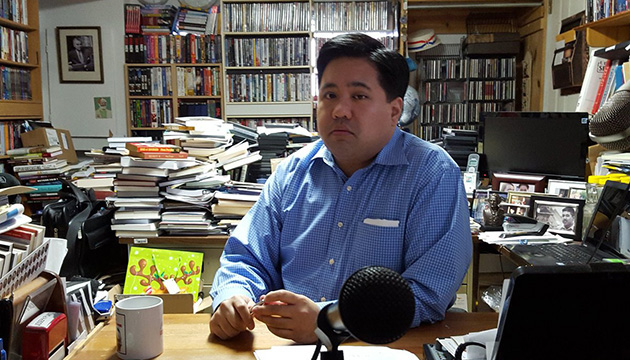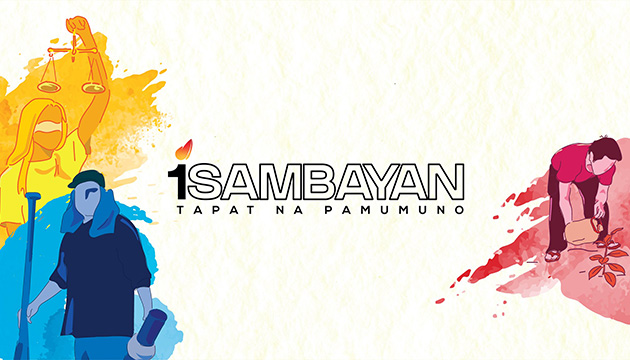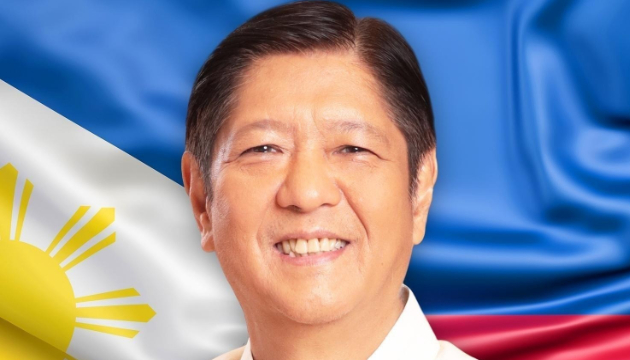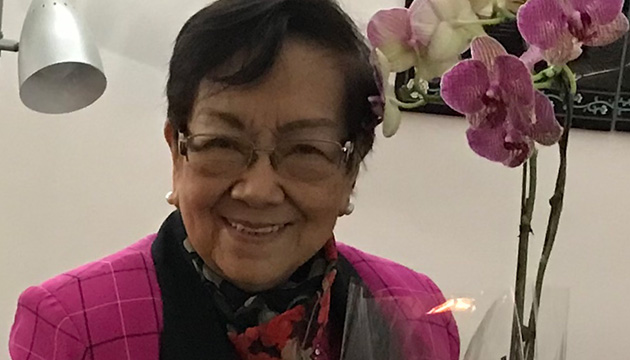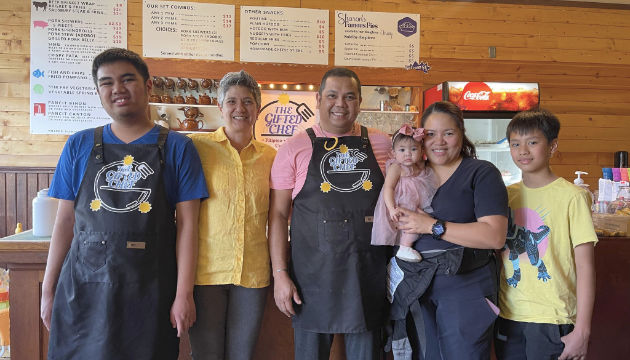It is important to reflect on one’s heritage. But what if, upon reflection, you realize you don’t think about it that much?
I was born in Canada to Filipino parents. My experience as a Filipino in Canada is probably very different from someone who was born in the Philippines. One of the benefits of growing up in an urban city like Vancouver is that you don’t have to think about your racial identity when racial diversity is the norm rather than the exception. Sure it comes up. I’ve run into well-meaning, but exceedingly patronizing people who, in an effort to initiate a conversation, will resort to speaking some foreign lingo they assume I know because I happen to look like someone who they think speaks that language. Perception is reality, and very often, I am confronted by my own identity through someone else’s lens.
When I ride the bus home some late nights, I’ll often overhear people’s conversations, either with other passengers, or with someone on a cell phone. I’ve never learned to speak any Filipino dialect, but I understand a little bit of it. The Filipinos on the bus, I frequently see are mainly going home from shift work. I sometimes wonder what it would be like to ask some of these Filipinos on the number 8 bus about their identity. I’m assuming they’re probably a lot more concerned with making ends meet, paying the bills, getting more hours at their job, or getting a better job. I’d probably ask them about their lot in life, whether it’s as expected, or whether they think it’s as good as it gets, if they wonder how they’re perceived, or what their dreams are.
I have made a concerted effort on the interview program I host to find guests that illuminate the Filipino experience a little bit better because it is so underrepresented in the wider media landscape.
What I've learned about Issues facing Filipinos in Canada
I have realized that for a lot of people their racial identity can be a barrier more than a benefit at times. It’s up to those that feel they need to speak up, to do so. Forums like this are a marvelous opportunity for people to enlighten and illuminate themselves and others. And it’s up to all of us to take the time to listen to those voices.
And we should listen more, ask more questions, and perhaps take the time to highlight the challenges that arise because of identity. Perhaps it might do something to address the inequities and inequalities that exist not only in the Filipino Canadian community, but in the wider Canadian context as well.
The writer Miguel Syjuco once told me in an interview about the crab mentality that he encountered in Filipinos whether in Canada or elsewhere: “When the crab tries to get out of the bucket, or rise above himself, everybody pulls him down.”
My grandmother came to Canada in the early 1970s. She was in her 60s and was active in the seniors community here to the end of her life at 91 in 2003. I can remember accompanying her to events as a child, and hearing about the effort to build a Filipino community centre, just as the Italians and Croatians have in Vancouver. For over 30 years now, that effort has been mired in controversy, gossip and innuendo, with no building to show for it.
Like most communities, politics forges a community. The immigrants who arrived in Canada in the 1970s and 1980s, escaped a political landscape that was very different from Canada’s. In time, Filipinos have added their names to ballots, and a number have won office. In the 2013 provincial election in British Columbia, one riding featured two candidates, both of Filipino heritage, representing the leading competing parties. It was fascinating to see that both these candidates had emerged with unique voices, identities that weren’t cultivated in the backbiting of the Filipino Canadian community a generation earlier.
Forging a new kind of Filipino Canadian Identity
My parents who came in the 1970s were too busy getting here and too tired after work to do anything more than read the paper and vote, let alone write, or run for office. I suppose it is the luxury of a second, or third generation to ponder what it means to be Filipino Canadian today. But it is also the responsibility those of us in the second and third generations to expand what it means to be Filipino Canadian.
Most people think about their identity when they’re really young, thinking about their place in this world and what that space might encompass. The search for identity might concern people at the end of their life, when considering the totality of their years and just what their legacy might be. Having children might hasten thoughts about one's roots. Not having children, I haven’t had the experience of having to help an offspring with a family tree project for school.
But I suspect as I get older, I might think about my own background more. I suppose as one approaches midlife, as people from one’s past and present fall away, it’s no longer self-indulgent but urgent. Maybe given the chance, going boldly to the past, uncovering whatever might need to be unsheathed might present some idea about what the future might hold.


